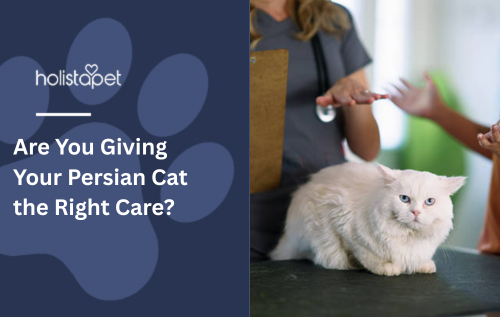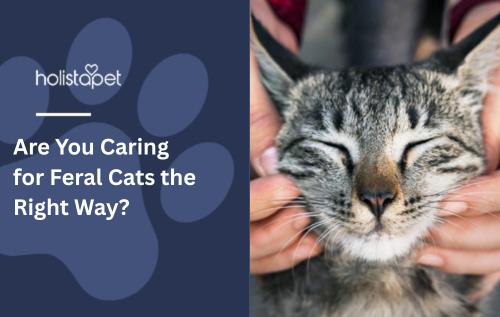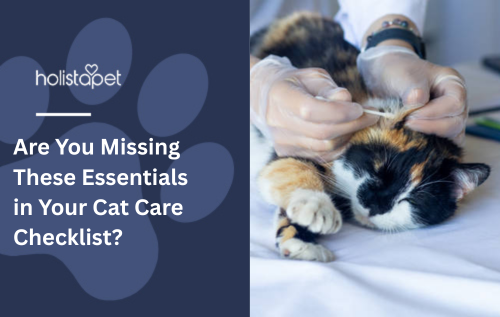Persian cats are known for their luxurious coats, sweet personalities, and royal charm. But behind their beauty lies a high-maintenance routine that many new cat parents don’t anticipate. If you’re unsure whether you’re doing everything right, don’t worry — this guide offers essential Persian cat care tips that will help keep your feline friend happy, healthy, and purring for years to come.
 Why Persian Cat Care Is Unique
Why Persian Cat Care Is Unique
Persians aren't like your average short-haired house cats. Their long fur, flat faces (brachycephalic features), and calm demeanor require a unique set of grooming, feeding, and health practices.
1. Grooming Is a Daily Must
-
Brush Daily: Their thick coats are prone to mats and tangles. Use a stainless steel comb daily to prevent knots.
-
Bathe Regularly: Depending on the cat, a monthly bath helps reduce oil buildup and matting.
-
Eye Cleaning: Due to their facial structure, Persian cats often have tear staining. Use a clean, damp cotton pad to wipe their eyes daily.
2. Choose the Right Diet
Persians need high-quality, protein-rich diets to maintain their coat health and support digestion.
-
Hairball Control: Their grooming habits can lead to hairball issues, so choose formulas that aid hairball elimination.
-
Omega Fatty Acids: A diet rich in Omega-3 and 6 can improve coat condition.
-
Avoid fillers: Stay away from corn, soy, and artificial additives.
3. Keep Their Living Space Clean
-
Litter Box Hygiene: Long fur attracts litter. Use a low-dust, unscented litter and clean the box daily.
-
Trim Paw Fur: This prevents litter tracking and helps with cleanliness.
-
Calm Environment: Persian cats prefer quiet spaces — they’re not fans of chaos or loud environments.
4. Regular Vet Visits Are Non-Negotiable
Persians are prone to:
-
Polycystic Kidney Disease (PKD)
-
Respiratory issues
-
Dental problems
Routine checkups (at least twice a year) ensure early detection and treatment.
5. Mental and Emotional Stimulation
-
Interactive Toys: While calm, they still need playtime to avoid obesity and boredom.
-
Gentle Socialization: Persians are affectionate but not overly clingy. They enjoy gentle interactions on their terms.
 Frequently Asked Questions
Frequently Asked Questions
Q1: How often should I groom my Persian cat?
Daily brushing is essential. Skipping even a few days can result in painful mats that may need professional grooming.
Q2: Can I feed my Persian regular cat food?
Not ideal. Persian cats benefit from breed-specific formulas or foods designed for long-haired or indoor cats with sensitive digestion.
Q3: Are Persian cats good with kids and other pets?
Yes, but they prefer a calm atmosphere. Supervise young children and introduce other pets slowly.
Q4: What should I do about tear stains?
Use a clean, damp pad daily. Some cat-safe tear stain removers are available, but consult your vet before use.
Final Thoughts
Persian cats are a beautiful blend of elegance and tranquility — but they come with specific needs. By following the above Persian cat care tips, you’ll be ensuring a happier, healthier life for your feline companion.
Whether you’re a first-time Persian owner or looking to refine your care routine, remember: a little daily effort goes a long way in keeping your Persian looking and feeling their best.
Helpful Notes:
-
Invest in a high-quality stainless steel comb — plastic ones can cause static and breakage.
-
Use cat-safe wet wipes for quick cleanups, especially around the eyes and bottom area.
-
Schedule grooming sessions during quiet times to reduce stress.
-
Always consult your vet before making dietary changes or introducing new grooming products.


 CBD Oil for Cats - Fast Acting
CBD Oil for Cats - Fast Acting
 CBD Cat Treats - Easy Dose
CBD Cat Treats - Easy Dose
 CBD Calming Chews for Cats - Highly Rated
CBD Calming Chews for Cats - Highly Rated
 CBG Oil for Dogs and Cats - Loved by Thousands
CBG Oil for Dogs and Cats - Loved by Thousands





Leave a comment
This site is protected by hCaptcha and the hCaptcha Privacy Policy and Terms of Service apply.